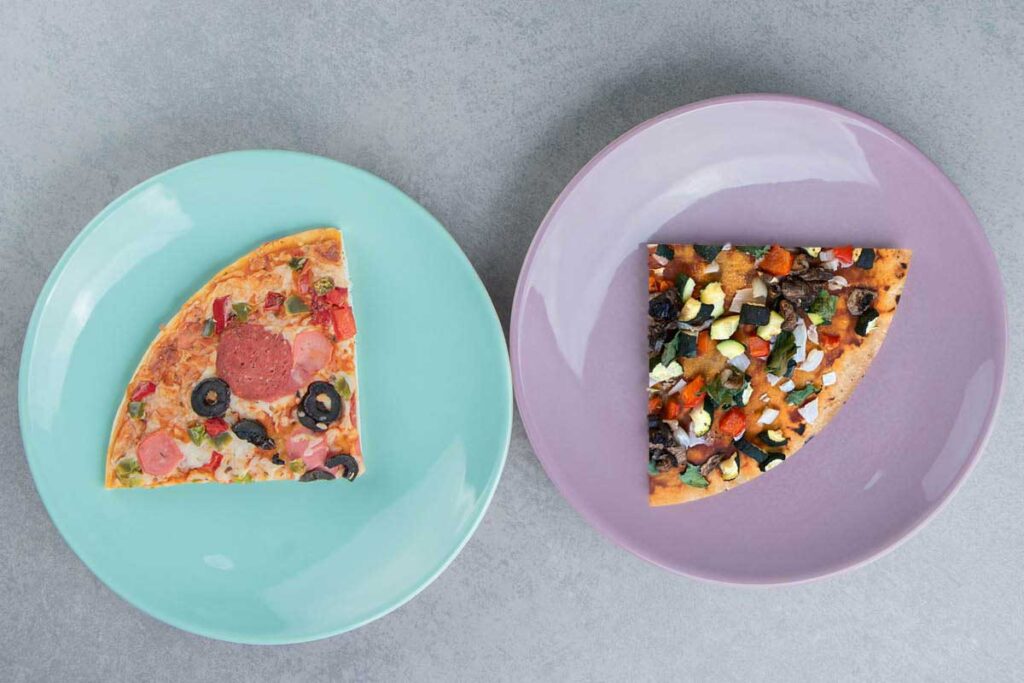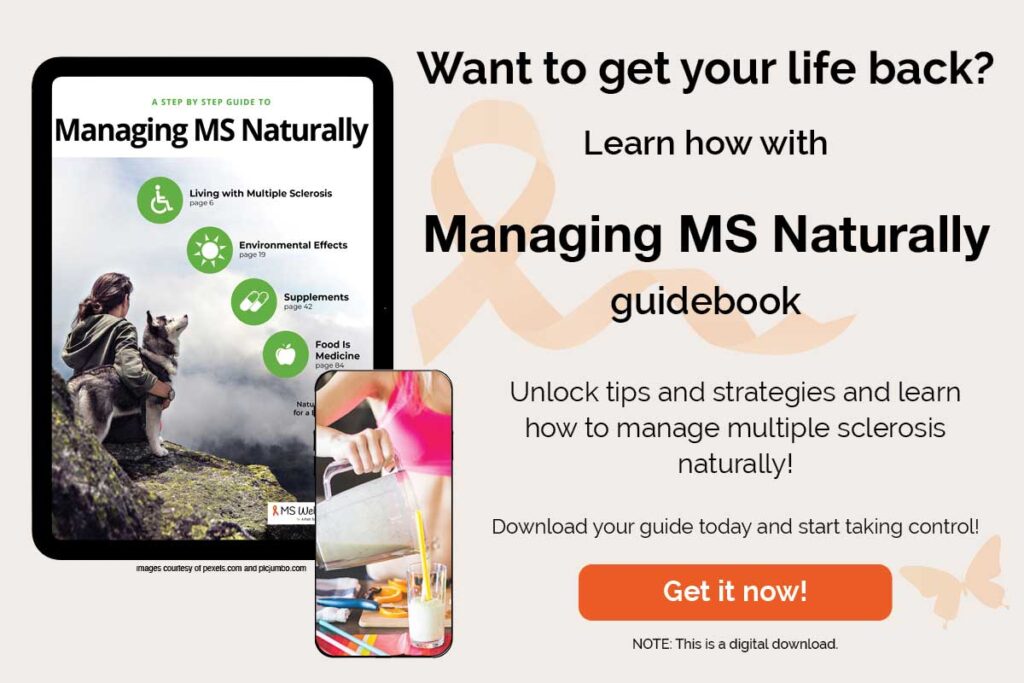
It’s important to eat a healthy diet when you’re trying to manage your multiple sclerosis (MS). But, sometimes it’s hard. Especially when your family still eats the standard American diet. Eating healthy when your family doesn’t can feel like an uphill battle. Everywhere you turn, there’s fast food, sugary snacks, and processed meals. It’s frustrating, and sometimes, it feels discouraging.
It can feel frustrating to eat healthy when your family doesn’t follow the same diet, but staying committed to your health is worth it. But here’s the good news—you can stick to your strict diet without feeling left out. Your health comes first, and every choice you make is a step toward feeling better.
A healthy diet plays a huge role in managing MS. It helps lower inflammation, supports your nervous system, and may even reduce symptoms. That’s why it’s so important to stay committed, even when your family isn’t on board.
It won’t always be easy, but with a few simple strategies, you can make it work. You don’t have to feel left out or tempted every day. Let’s talk about how to stay strong, set boundaries, and make this journey a little easier.
Understanding Your “Why”

When you’re surrounded by family members eating whatever they want, it’s easy to feel tempted. The smell of fresh pizza, the sight of ice cream in the freezer. It can make you question why you’re sticking to your strict diet.
That’s why it’s so important to know your why.
Why did you choose this path? Maybe it’s to reduce MS symptoms. Maybe you want more energy to get through the day. Maybe you’re hoping to avoid another flare. Whatever your reason, hold onto it. Write it down. Keep it where you can see it.
For me, it was the fear of another flare. The last flare I had left me looking like I had a stroke. I had double vision, couldn’t walk, had slurred speech, and half my face was paralyzed. It was scary. I never want to go through that experience again.
When cravings hit or the family pressures you to “just have one bite,” remind yourself why you started. Your health is worth more than a few minutes of comfort food. Just because your family doesn’t eat healthy now doesn’t mean they won’t be inspired by your choices later.
This journey isn’t easy, but it is worth it. Every healthy choice brings you closer to feeling better, stronger, and more in control of your MS. Keep going!
Setting Boundaries Without Starting a Food War

Image by azerbaijan_stockers on Freepik
Eating differently from your family can feel awkward. You don’t want to argue about food every day, but you also need to stay committed to your health. The key? Setting clear boundaries without making it hard on yourself.
Be upfront about your choices. Let your family know this isn’t about their diet—it’s about your health. You’re not trying to change them, and you’re not asking them to eat the way you do. You just need their understanding.
Here is a simple way to explain it:
“I need to eat this way for my health, but I don’t expect you to change.”
If they push back, stay calm. You don’t have to defend your choices. Just repeat your boundary with kindness:
“I’d love your support, but I understand if you don’t want to eat the same way.”
At mealtimes, focus on enjoying your food, not what others are eating. If family comments on your plate, smile and change the subject. The less you engage in food debates, the easier it will be.
Whenever my family wants to have a pizza night, I make a pizza that I can eat. Plus my pizza looks a lot better than their pizza. This way, I still get to enjoy the tradition without compromising my health. It’s not about depriving yourself—it’s about finding delicious alternatives that support your health while still enjoying the moments with your family.
Finding ways to eat healthy, even when your family doesn’t, can make a huge difference in managing your MS. You deserve to eat in peace. Setting boundaries helps you stay strong—without turning every meal into a battle.
Creating a Safe Zone for Your Food

When your kitchen is filled with foods you’re trying to avoid, sticking to your diet gets a lot harder. That’s why setting up a safe zone for your food is so important.
Start by claiming your space in the fridge and pantry. Set aside a shelf or drawer just for your food. This helps you stay organized and prevents accidental mix-ups.
Label everything. If you meal prep or store leftovers, write your name on the containers. That way, no one accidentally eats your carefully prepared meals.
Move tempting foods out of sight. If your family has chips, cookies, or other off-limits foods, ask them to keep them in a separate cupboard. Choose one you don’t use so you’re not tempted. Out of sight, out of mind!
I have two shelves in our fridge and two shelves in our pantry. I use organizers with drawers to keep food from going bad in the back. I asked my family to keep junk food, like chips, out of my sight and they did.
Keep finger foods like cherry tomatoes and broccoli florets near the front so they are quick and easy to grab. Having a safe, organized space makes it easier to grab what you need and stick to your diet without stress.
Meal Planning for Success

Planning ahead is one of the best ways to stay on track. When you know what you’re eating, you’re less likely to grab something unhealthy at the last minute. If your family doesn’t eat healthy, focus on creating meals that work for you while still enjoying time together at the table.
Start with batch cooking. Pick a day to prepare a few meals in advance. Cook big batches of soups, roasted veggies, or proteins ahead of time. This way, you’ll always have something ready to eat.
When cooking a meal make a double batch to freeze half for another day. Keep easy snacks on hand. Cut-up veggies, fresh fruit, nuts, or homemade energy bites can save you when hunger strikes.
A simple meal plan lets you eat with your family without extra work. You won’t have to cook two completely different meals. For example:
- Breakfast: Smoothie for you, eggs and toast for them.
- Lunch: Big salad for you, sandwiches for them.
- Dinner: Veggie stir-fry with cauliflower rice for everyone, plus chicken for them if they want.
If they want extra ingredients you can’t have, scoop out your portion first. Then, add things like cheese or sauces to theirs. That way, everyone is happy, and you don’t have to cook separate meals.
The goal isn’t to make your diet feel like extra work. With a little planning, you can eat well and make meals easier for everyone.
Handling Social Meals and Family Gatherings

Eating differently at family gatherings can feel awkward. You don’t want to feel left out, but you also don’t want to eat something that makes you feel worse. The good news? You can enjoy these meals without stress.
Bring your own food. If you’re not sure what will be served, bring a dish that fits your diet. That way, you know there’s at least one thing you can eat.
Modify meals when possible. If the main dish is grilled chicken, ask for yours plain. Skip any sauce or seasoning you can’t have. If there’s a salad, skip the dressing and add your own, or ask for lemon wedges.
Handling comments with confidence. Someone will probably say, “Just one bite won’t hurt.” It’s okay to say no. Try:
- “I wish I could, but it doesn’t make me feel good.”
- “I’m working on healing right now, but thanks for offering!”
You don’t owe anyone an explanation. Be kind, but firm. Over time, your family will get used to your choices. The most important thing? Enjoy the gathering, not just the food. Focus on the people, the conversations, and the moments—not what’s on your plate.
Finding Emotional Support

Eating differently from your family can feel lonely. Watching them enjoy foods you used to love might make you feel left out. It’s hard when they don’t fully understand why you’re doing this.
I was lucky—my family, friends, and even my coworkers were very supportive. But I know that’s not the case for everyone. If your loved ones don’t join you on this journey, find people who will support you.
Look for online groups or MS support groups. Many communities are full of people who understand your journey. You can find support, advice, and encouragement from them. They can also offer advice, encouragement, and even recipe ideas.
Having a friend or accountability partner can also make a big difference. It could be someone with MS or just a friend who wants to eat healthier too. Checking in with someone who understands helps you stay motivated.
You’re not alone in this. Even if your family doesn’t eat the same way, you can find support. Surround yourself with people who lift you up and remind you why you’re doing this. Your health is worth it.
Conclusion
You can still eat healthy when your family doesn’t by planning ahead and setting clear boundaries. It may feel hard at first, but over time, it gets easier. Your health is worth the effort, and your family may even come to respect your commitment.
Stay strong, be patient, and take it one day at a time. If you slip up, don’t beat yourself up. It’s just one meal, not a failure. Simply refocus and keep moving forward.
Every healthy choice you make is a step toward feeling better. Keep going—you’re doing this for you, and that’s what matters most.

Reclaim your life and discover the secrets to Managing MS Naturally!
To learn more click here: Managing MS Naturally.

Want to remember this health tip? Pin it to your Pinterest board!

Image by pvproductions on Freepik
How to Eat a Strict Healthy Diet When Your Family Doesn’t





